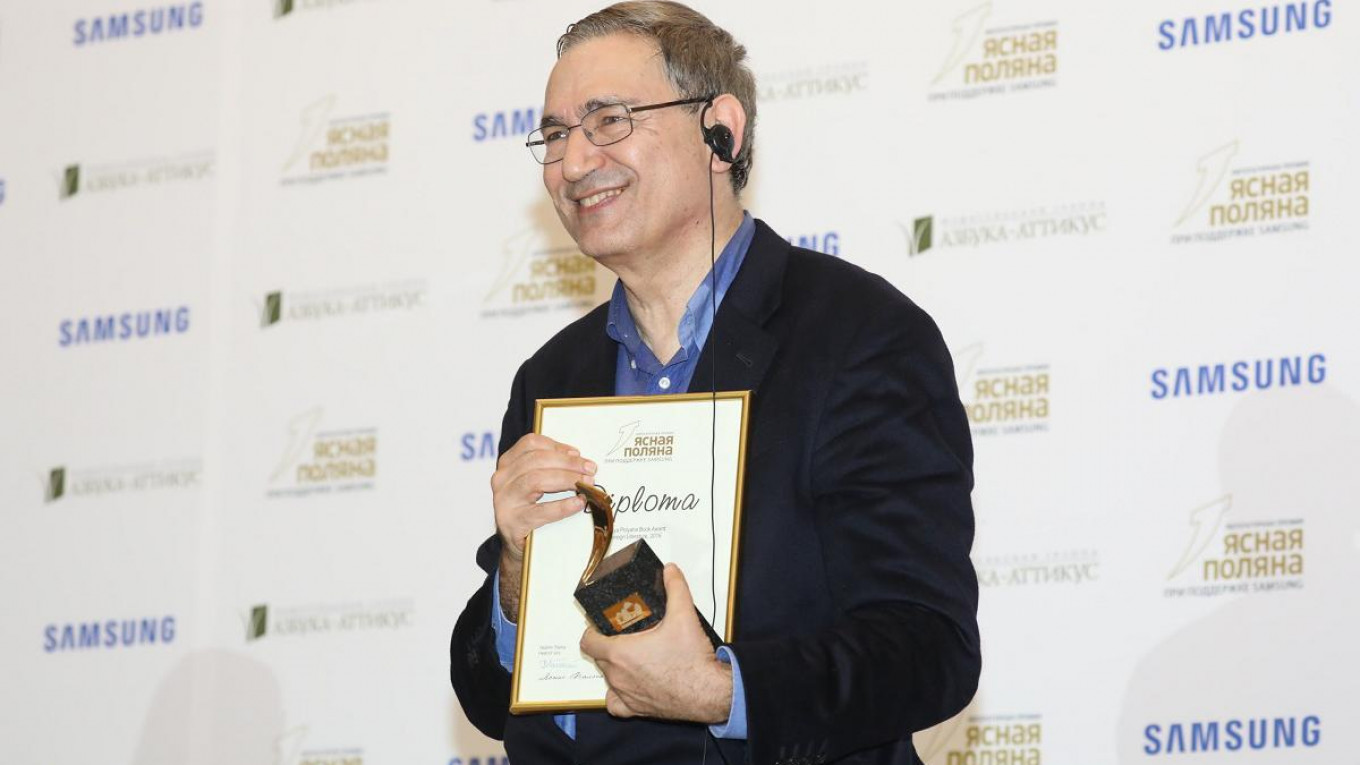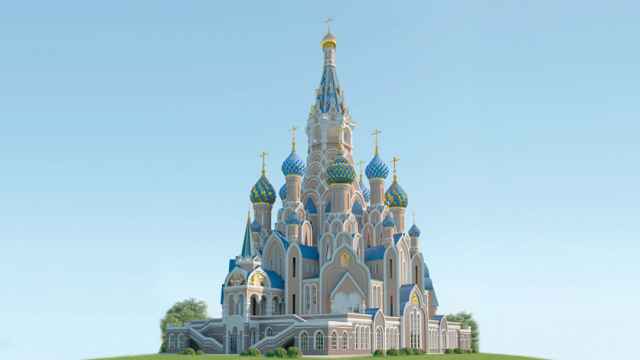Turkish writer and 2006 Nobel prize winner Orhan Pamuk has been presented with the Tolstoy estate's Yasnaya Polyana Literary Award for his 2014 novel "A Strangeness in My Mind" at a special ceremony in Moscow.
The prize, in the "Foreign Literature" category, was given to Pamuk at the Russian State Library on Feb. 24 at a special ceremony organized for the writer, who was unable to attend the official award ceremony in the fall of 2016.
"In 1974 as a young man of 22 I was a great admirer of Tolstoy. But at 23 [when he became a writer] I could not have even dreamed that I would receive a prize like this and travel to Russia to receive it," said Pamuk, who added that for him the prize was "a great honor."
"We have been waiting for this event for several months," said Vladimir Tolstoy, chairman of the jury for the Yasnaya Polyana Award, referring to the delay in presenting the prize to Pamuk.
Like many of Pamuk's works, "A Strangeness in My Mind" explores the relationship between culture and tradition in his hometown of Istanbul, focusing on the transformation of the city where he spent most of his life. The novel took him six years to complete.
The Yasnaya Polyana Literary Award was founded in 2003 by the Yasnaya Polyana Leo Tolstoy Museum-Estate and Samsung Electronics and is devoted to promoting the traditional Russian novel.
The "Foreign Literature" nomination, now in its second year, is awarded to the contemporary foreign work (and its translation into Russian) deemed most important by the jury. U.S. writer Ruth Ozeki won the inaugural prize in the nomination in 2015 for her book "A Tale for the Time Being."
Earlier in the week, Pamuk, whose works have been translated into 61 languages, visited the Yasnaya Polyana estate in the Tula region south of Moscow, which he described as a long-held dream.
A Message from The Moscow Times:
Dear readers,
We are facing unprecedented challenges. Russia's Prosecutor General's Office has designated The Moscow Times as an "undesirable" organization, criminalizing our work and putting our staff at risk of prosecution. This follows our earlier unjust labeling as a "foreign agent."
These actions are direct attempts to silence independent journalism in Russia. The authorities claim our work "discredits the decisions of the Russian leadership." We see things differently: we strive to provide accurate, unbiased reporting on Russia.
We, the journalists of The Moscow Times, refuse to be silenced. But to continue our work, we need your help.
Your support, no matter how small, makes a world of difference. If you can, please support us monthly starting from just $2. It's quick to set up, and every contribution makes a significant impact.
By supporting The Moscow Times, you're defending open, independent journalism in the face of repression. Thank you for standing with us.
Remind me later.






